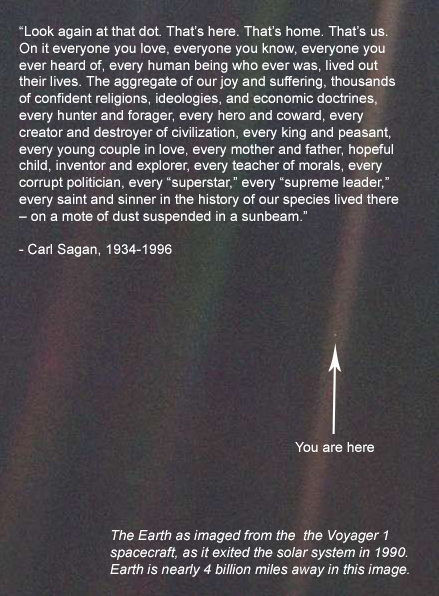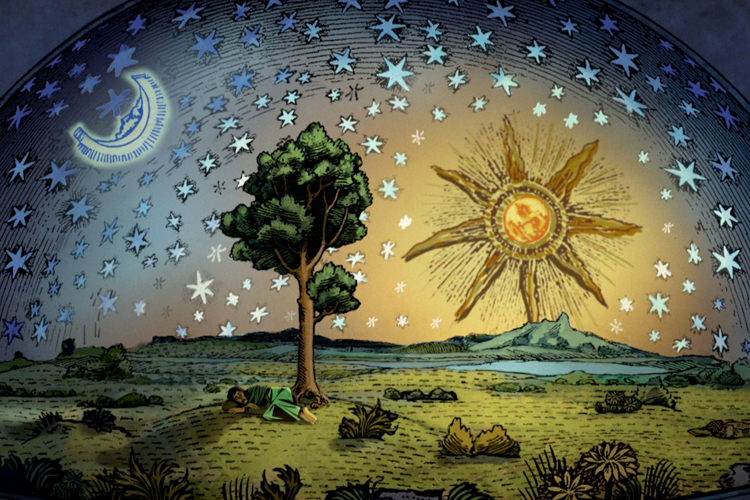Cosmos: A Spacetime Odyssey
Glow-in-the-dark stars dot the dark ceiling above my top bunk bed, my brother sleeping below me. Space has fascinated me since I was a kid. Science was cool, and I learned early in life that the mysterious world around me could be understood through observation and experimentation.
Between late high school and early college I lost touch with science. The immediacy of computers and technology gripped me and I had to understand them deeper. I don't regret those years for they birthed my programming career. It wasn't until after college in my mid-20's, amid much self-reflection and reevaluation, that I space and science found their way back to me.
It was 2009 when I first discovered Carl Sagan's TV series, Cosmos: A Personal Voyage (1980). (The entire series is on YouTub or Hulu. Start here.) Carl Sagan's way of confidently asserting the seemingly unknowable captivated me. His poetic words stuck with me long after I first heard them. Repeat viewings have instilled a framework for making sense of myself and my insignificant place in the universe.
When news broke in late 2011 that Cosmos was being reborn with new episodes, I was overwhelmed with excitement. Finally, the ideas that inspired me so deeply might inspire a new generation and update with the latest findings in the 30-some years since the original.
Cosmos: A Spacetime Odyssey (2014) is hosted and narrated by astrophysicist Neil deGrasse Tyson. Writers for the original Cosmos, Ann Druyan and Steven Stower, are writing the new series. Music by Alan Silvestri, who scored the movie Contact based on Sagan's novel of the same name, is on board to score the series.
The show and its writing pay tribute to the original by sprinkling oft-quoted clips of Sagan, and reuse metaphors such as The Spaceship of the Imagination, The Cosmic Calendar and the Evolution in 40 Seconds animation. The visuals effects rival that of modern blockbuster films. Animation segments exploring historic scientific figures are stylish yet original and take what could be yet another boring historical vantage point and make it very engaging.
Realizing the Cosmos's ultimate goal would mean viewers rethinking what they believe to be true about who they are, where they come from and where they're going.
Cosmos currently premieres new episodes on Sundays at 9:00pm Eastern on Fox. Previous episodes can be viewed online at CosmosOnTV.com and on Netflix.
comments powered by Disqus
